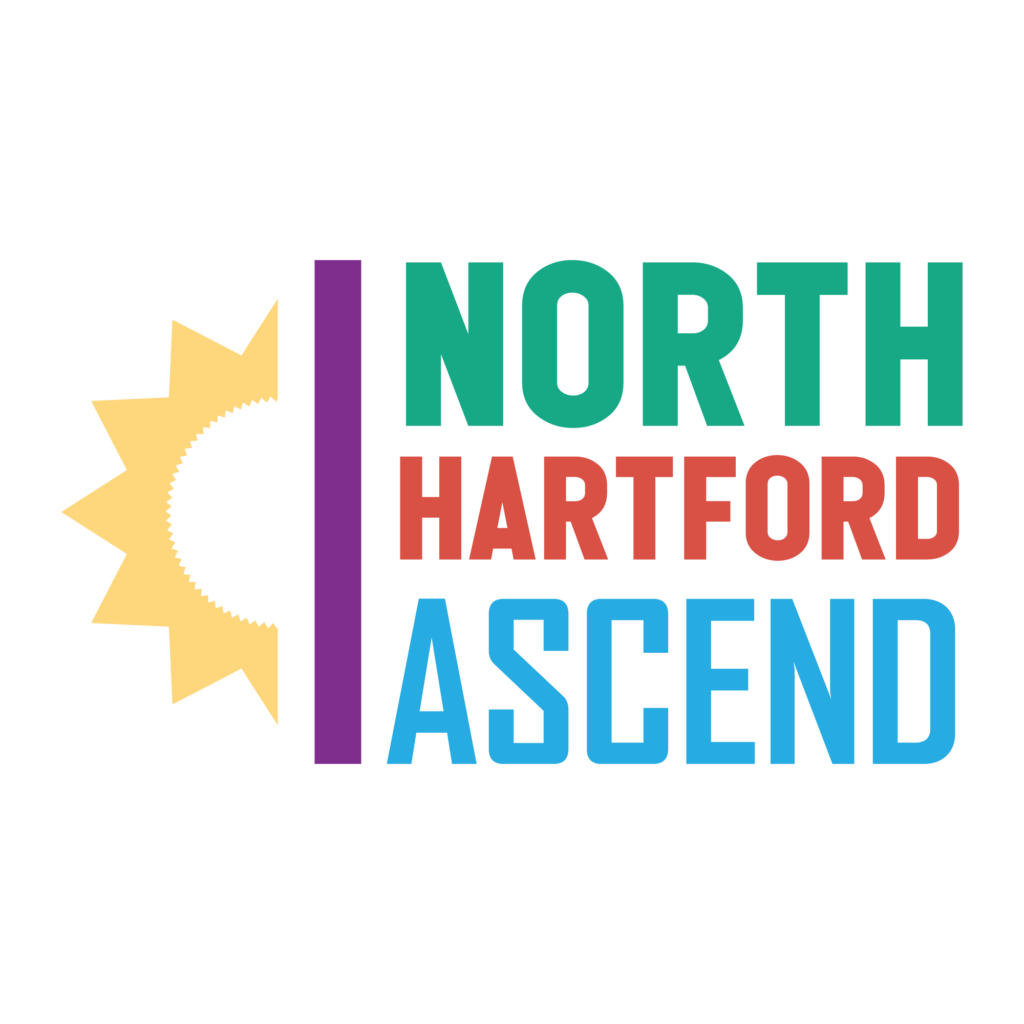CO-DESIGNING WITH FAMILY NAVIGATORS
CT DATA COLLABORATIVE
CT Data Collaborative (CT Data) seeks to connect individuals and communities with data to promote informed decision-making and to advance equity in Connecticut.
PARTNERING WITH THE LAB
In 2023, CT Data introduced the first draft of the Community Resource Map (the Map) [then titled the “Neighborhood Profile & Mapping Project”] to the North Hartford Ascend Family Navigation Work Group. In response to an identified community priority, the interactive tool visually presents North Hartford Ascend providers by service category and developmental stage using a geospatial information system. The Map was designed to be widely used and accessed by family navigators, providers, and residents in the community so as to improve outreach, inform program strategies, and increase awareness and access to community resources. To optimize the design of the tool, specifically its utility and content, CT Data and Childhood Prosperity Lab (the Lab) partnered to co-design the Map with care coordinators and family navigators.
OUR METHODOLOGIES
The Lab recruited a total of four team members in care coordination and family navigation roles from The Village for Families and Children and Connecticut Children’s to participate in 1:1 think aloud tests. Care coordinators were selected to participate in this activity based on their experience assessing, referring, and linking families to services. Think aloud tests were virtually facilitated by a Childhood Prosperity Lab Program Specialist. To implement the methodology, the facilitator shared a link to the Map in the chat so that the participants could share their screen and “think aloud” with their feedback. The facilitator specifically encouraged participants to focus on the usefulness of information provided as well as the experience of navigating the tool.
KEY FINDINGS
Participant Feedback:
- Consider filtering resources by program requirements such as income eligibility, family size, zip code, etc.
- Consider expanding the resources section, specifically with resource categories of: summer camp options, child care options, clothing banks, mutual housing authority, financial support options, and resources for adult health.
Facilitator Observations:
- Three out of the four participants did not explore the “more instructions” tab. The facilitator prompted participants to look at this section and provide feedback on it. One participant recommended taking the text on this tab and bumping it out to the main page so that it’s the first thing people see.
- Participants want to know who will maintain the tool and at what cadence of time to ensure information about programs and agencies are up to date. The recommendation was quarterly.
OUR IMPACT
In a follow-up survey, CT Data project partners agreed that the Human-centered Design approach helped them to achieve their project outcomes, sharing: “Think-aloud testing was a fantastic way to get feedback on this project. We learned a lot from users’ comments, questions, and ideas as they explored the tool, and learned from watching the way they interacted with the tool’s interface. The insights gained from this process will definitely make our project a more effective resource.”
LEARN MORE ABOUT THE LAB
Childhood Prosperity Lab values engaging children, families, communities, and other key stakeholders as thought leaders and partners in the design of social innovations that support their health, development, and well-being. The Lab defines Human-Centered Design (HCD) as a methodological framework for centering the needs, goals, and perspectives of children, families, communities and other key stakeholders in the design, implementation, and evaluation of social innovations. Team members from Childhood Prosperity Lab are certified Human-centered Design Practitioners, specializing in the thirty-six methods that comprise the LUMA Framework.
Think-aloud testing is a “call by call account of an experience whereby people’s articulation of a typically unspoken thought process not only helps the team pinpoint where the success and failure points are in their current thinking or design, but it also diagnoses the causes,” according to the LUMA Institute.
STAY CONNECTED
- Email: childhoodprosperitylab@connecticutchildrens.org
- Facebook: Connecticut Children’s Community Child Health
- LinkedIn: Connecticut Children’s Office for Community Child Health
